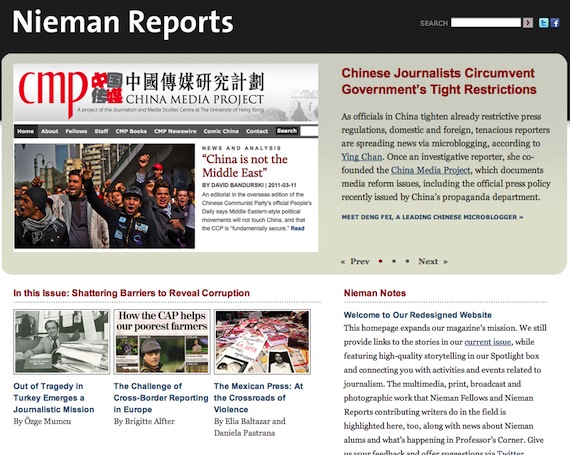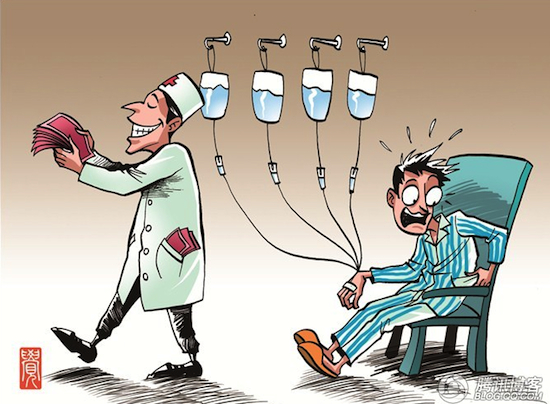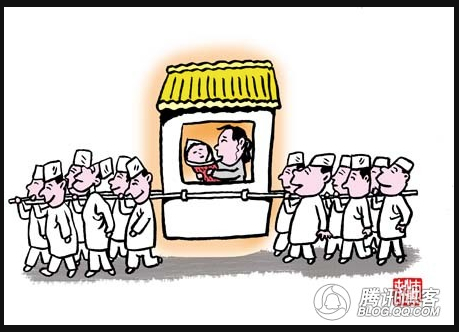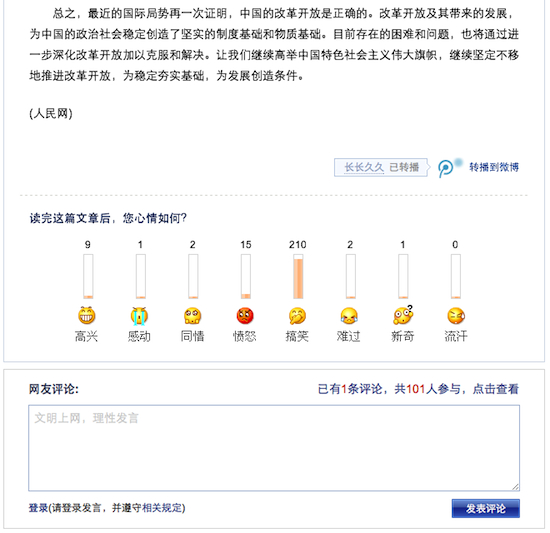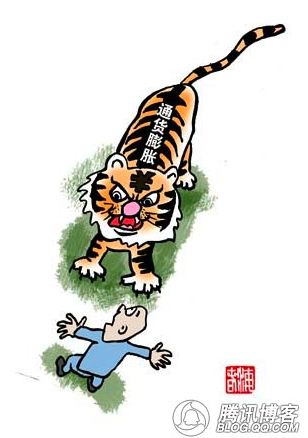Just as China grapples with widespread fears over possible fallout from Japan’s ongoing nuclear crisis — with a rush by citizens this week to horde salt in the belief it might help stem the effects of radiation — the country is dealing with yet another food safety crisis as well, this time over pork. Earlier this week, a report on the state-run China Central Television said Henan Shuanghui Investment & Development Co Ltd, China’s largest meat processor, had been selling pork containing high levels of meat-leaning additives identified in the media as ractopamine and/or clenbuterol.
In excessive amounts, these additives can cause serious health issues in humans. Li Zhiqi (李志起), an expert with the University of International Business and Economics, told The Beijing News yesterday that the use of such additives to produce leaner meat was not confined to Henan Shuanghui, and that the problem was common in the industry.
This is not the first time China has been hit with concerns over dangerous additives in pork products. In 2006, 336 people were reportedly sickened in Shanghai by pork containing clenbuterol, which has been used worldwide as a performance-enhancing drug and is banned by the World Anti-Doping Agency. In 2007, China suspended imports of animal products from the United States, citing the presence of banned additives, including ractopamine. A range of so-called “beta-agonists,” including clenbuterol and ractopamine, are approved for use in the United States. South Africa and Mexico, but banned in China and the European Union.
There may be a more complicated story behind the scenes here about the global use of these and other agents in meat products. But as state media have continued in recent weeks to drum home the point that Chinese are prosperous, secure and content with the performance of the Party and government, this latest food safety scandal has rattled nerves and sparked anger.
Here is a translation of comments under the news report from The Beijing News in the order they appeared earlier today at QQ.com:
腾讯常州市网友 中国人20小时前
Finally I hear a real expert speaking the truth. I’m moved. I’m truly moved. In real life, there are so few experts who have a conscience like this.
腾讯绵阳市网友 马丁——牧师18小时前
God! In the past I was fond of Sanlu, but Sanlu died. Now I’m fond of Shuanghui, but Shuanghui will die soon. All-powerful God, I want to say to you: Who I really like best are our inspectors in various industries!!! Amen . . .
腾讯网友 yfz19小时前
All of you so-called ‘civil servants’, what are you doing most of the time? Why is it that only after something big breaks you come out and give it ‘top priority’, and after the storm has passed let everything go on as it always had. Why do we taxpayers support you at all?
腾讯北京市网友 彼岸花开17小时前
This matter should be pursued all the way to the Bureau of Quality and Supervision. When products come out the first step is to inspect them for quality. I don’t know if everyone saw previous reports. Just by paying money you can get a ‘pass check’. [These inspectors] are eating from the table of the state but doing nothing for the people. It’s abominable!
腾讯江苏省网友 冰糖葫芦18小时前
I just want to know why it is that these problems require uncovering by the media. What are the relevant [government] departments doing? They are supported by the taxpayers!!!
腾讯网友 老百姓17小时前
The Sanlu incident was handled too leniently, and couldn’t serve as a warning. [The people responsible] should be found out and firmly, quickly and severely dealt with with death penalties. It should be like in the early days of Liberation, when dishonest traders who hurt the ordinary people were lined up and shot.
腾讯网友 ~清清山溪~17小时前
It’s a tragedy. There are minefields all around the Chinese people. Ultimately this comes down to a loathsome ruling class playing with power without any scruples whatsoever.
腾讯金华市网友 一杯清水18小时前
I support Wang Lijun (王立军). Those responsible for making harmful products should be shot.
腾讯网友 四夕王一人可53分钟前
‘Finally I hear a real expert speaking the truth. I’m moved. I’m truly moved. In real life, there are so few experts who have a conscience like this.’ Even our true experts are fake! Why is it that we need an expose from China Central Television before the problem of illegal additives in pork gets out and experts show their faces?
腾讯北京市网友 阿呆1小时前
Experts say: This is common . . . I have no words.
腾讯包头市网友 我心飞翔1小时前
When Sanlu ran into trouble that year, the whole industry was dragged in. This year Shuanghui runs into trouble, and are we supposed to believe that its peers are clean?
腾讯徐州市网友 海深天高1小时前
This is criminal behavior, so how can the [government] just ‘sweep up’ and call it a day. This is an irresponsible attitude!
腾讯网友 小树2小时前
Let this company go broke, just like Sanlu.
腾讯济南市网友 知者自知2小时前
So experts finally start to speak like human beings.
腾讯北京市网友 小媛3小时前
No one should buy any.
腾讯北京市网友 小媛3小时前
Good.
腾讯北京市网友 小媛3小时前
It’s tragic!
腾讯北京市网友 小媛3小时前
We already have a Food Safety Law. When will this be implemented to seek criminal responsibility?!
腾讯网友 3693小时前
There are still experts who speak the truth. How rare.
腾讯网友 如影相随3小时前
And what kind of experts are most common?
腾讯福州市网友 Capricorn3小时前
God! Are we supposed to grow our own food and raise our own pigs now before we can eat with ease?
腾讯网友 蓝色天际3小时前
How is it possibly an isolated case? The meat I bought today is tainted with additives. I don’t think there is pork on the market in Hangzhou that’s free of additives. All of the pork you buy at the market has clenbuterol in it, right? I’m so angry, angry angry!!! No one is keeping an eye out.
腾讯网友 ZDX8783小时前
So Shuanghui, another major national food company, has problems. What can ordinary people still eat?
FRONTPAGE PHOTO: A Chinese dinner table, by FlickrMarcus available at Flickr.com under Creative Commons license.
